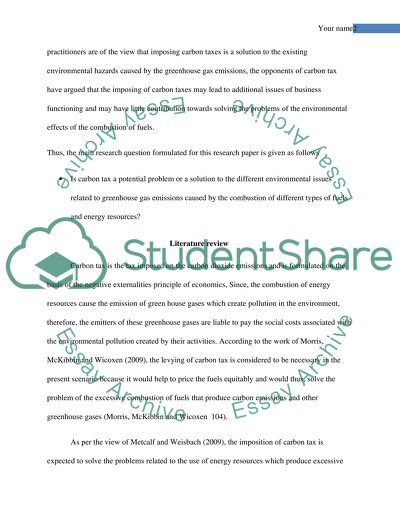Cite this document
(“Carbon Tax Research Paper Example | Topics and Well Written Essays - 2000 words”, n.d.)
Carbon Tax Research Paper Example | Topics and Well Written Essays - 2000 words. Retrieved from https://studentshare.org/environmental-studies/1677338-carbon-tax
Carbon Tax Research Paper Example | Topics and Well Written Essays - 2000 words. Retrieved from https://studentshare.org/environmental-studies/1677338-carbon-tax
(Carbon Tax Research Paper Example | Topics and Well Written Essays - 2000 Words)
Carbon Tax Research Paper Example | Topics and Well Written Essays - 2000 Words. https://studentshare.org/environmental-studies/1677338-carbon-tax.
Carbon Tax Research Paper Example | Topics and Well Written Essays - 2000 Words. https://studentshare.org/environmental-studies/1677338-carbon-tax.
“Carbon Tax Research Paper Example | Topics and Well Written Essays - 2000 Words”, n.d. https://studentshare.org/environmental-studies/1677338-carbon-tax.


